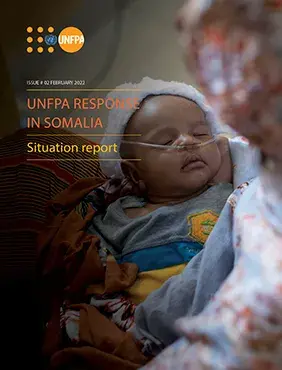The number of people affected by the severe drought has increased from 3.2 million people in December 2021 to about 4.3 million people in February 2022. Consequently, the number of Internally Displaced People (IDPs) has more than doubled from 245,000 to 554,000 people. A total of 7.7 million Somali women, men, and children are estimated to require humanitarian assistance in 2022, including around 2 million women of reproductive age. The negative impact of the drought on Somali women and girls has been reported across several platforms and is already visible.
The drought has similarly led to an increase in clan conflict and internal displacements across the country. According to UNHCR, some 132,400 population movements occurred in the Galgaduud region between January and February 2022, with nearly 117,800 people displaced due to the drought and over 14,000 due to clan conflicts. Families, mostly women and girls, were reportedly sleeping in open spaces without privacy, dignity, or physical protection. Immediate humanitarian response is urgently needed, including the referral of vulnerable cases to specialized service providers, such as child protection, Gender-Based Violence (GBV) and Psychosocial Support (PS). In addition, there is an immediate need for local authorities to address the issue of clan conflicts.


